Dungeons & Dragons offer plenty of options for players when it comes to classes, from magic-wielding spellcasters to axe swinging muscle men or sneaky scoundrels who hide in the shadows. With 14 official classes to choose from, it can be a daunting choice when creating your character for both new and experienced players.
If you are thinking of rolling up to play Dungeons & Dragons, you may want some help when picking your class. We’ve put together this guide breaking down each class you can play, with details on their stats, playstyle, strengths, and weaknesses, so you can make an informed choice about what kind of adventure you want to be when you join your next campaign.
Related: When Did DnD Come Out & Who Invented It? Explained
What are Classes in D&D?
Classes in D&D are the backbone of how you will play and navigate in a campaign and are arguably the most important component when building your character. They determine elements of combat, roleplaying, progression, and playstyle.
Each class has their own strengths, weaknesses, and unique quirks that give them their flavor and different ways they can interact with the world. Your class will also determine multiple character elements, including skills, abilities, equipment, and proficiencies.
Considering that you will be building the class you pick for the whole campaign, it’s a weighty and important decision. It’s also not a bad move to see what the rest of your party will be playing to create a balanced team.
How Ability Scores Help Shape Your Character
Ability Scores are the primary stats of your character, which in turn affect your class and their capabilities, including aspects like attack rolls, damage, and saving throws. These stats are as follows:
- Strength
- Dexterity
- Constitution
- Intelligence
- Wisdom
- Charisma
For example, a class like the Barbarian is focused on Strength and Constitution to deal out and take massive damage, so having high stats in those areas will benefit that class the most. Naturally, you can break away from the traditional archetypes of classes and make something more unique, like a very intelligent Barbarian with its own strengths and weaknesses. It’s worth considering how you want to play in and out of combat and then build your class around that idea.
Classes in D&D 5e
Artificer
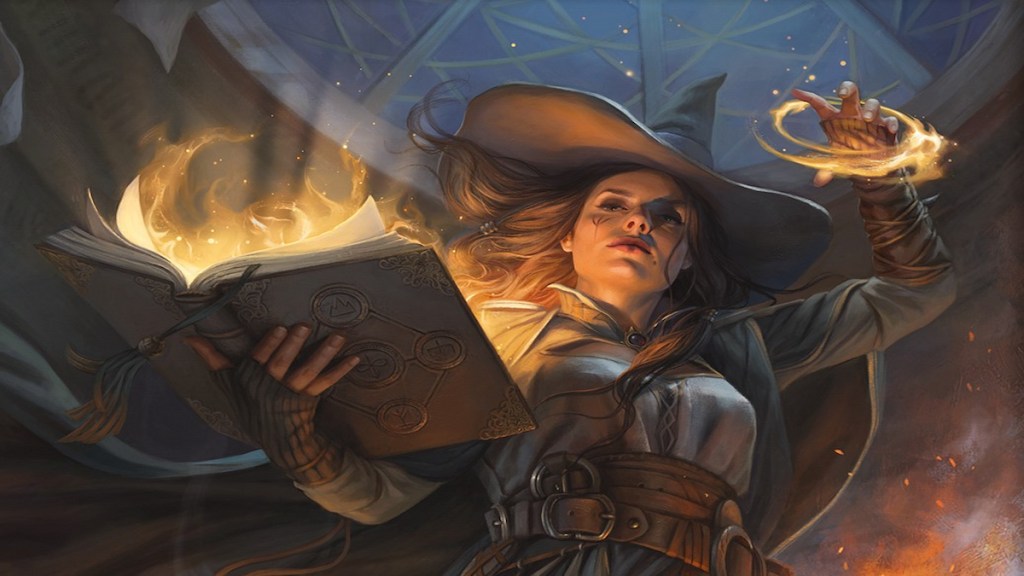
- Role: Support, Utility
- Primary Stat: Intelligence
- Hit Dice: 1d8 per level
- Saving Throws: Constitution, Intelligence
- Skills: Choose two from Arcana, History, Investigation, Medicine, Nature, Perception, Sleight of Hand
The Artificer is the first class that did not appear in the Players Handbook and made their first appearance in Eberron: Rising from the Last War before getting tweaks and a reprint in Tasha’s Cauldron of Everything. Artificers are best described as magical engineers, who alongside using spells like other casters, have a unique focus on items and infusions that aid the party with buffs and extra abilities. This class can provide valuable help and support in a party while having a few tricks up their sleeve to help in combat.
Strengths
The Artificer is a prime support and utility class, focusing on crafting and enhancing items to navigate combat and adventuring. Their infusion ability is the real standout feature, allowing them to modify and enhance items with additional benefits like additional abilities, more movements, upgrading weapons and armor, and giving players bonuses to saving rolls. Depending on your subclass, you’ll focus on specific aspects of the class, such as potions, crafting, building weapons like turrets, or creating your own construct companion.
Related: Best race and class combinations in Dungeons & Dragons (5th Edition)
Weaknesses
While the Artificer can be a great support and utility class, it’s not the most well-versed when it comes to combat. Their pool of offensive spells is rather small compared to other magic users, and they do not have as many spell slots that allow them to use their spells. They also can be rather complicated, with multiple elements like infusions, spells, and other factors to keep track of that may become tedious after a while.
Barbarian

- Role: Tank, Damage
- Primary Stat: Strength
- Hit Dice: 1d12 per level
- Saving Throws: Strength, Constitution
- Skills: Choose two from Animal Handling, Athletics, Intimidation, Nature, Perception, Survival
Barbarians are the hulking mountain of muscle in your party and one of the more straightforward classes in D&D 5e. These bulky murder machines are designed to hit hard and ask questions later and are built around dealing massive damage with melee weapons and are all about getting stuck into the fight. They may not be known for being diplomatic or particularly well-spoken, but what they lack in brains, they make up for with brawn.
Strengths
Barbarians are at the top of the food chain regarding melee damage thanks in part to their Rage ability. This class-specific skill grants a bonus to any check using Strength and gives a nice boost to their damage and resistance to all normal forms of damage. They also can attack recklessly, making it easier for them to hit enemies, with the caveat that they can also be hit more easily. To top it off, they have the highest hit dice in the game, which, combined with a high Constitution, gives them a huge amount of hit points, making them extremely durable.
Weaknesses
With the Barbarian being a mountain of muscle hungry for battle, you’ll not be too surprised by its weaknesses. Outside of combat, the Barbarian doesn’t have much in the way of utility, and for anything that doesn’t involve smashing something, they can offer little help. In addition, if an intelligent DM can burn through Barbarians Rage uses, they become much less effective in combat and quickly find themselves in sticky situations.
Bard

- Role: Support, Crowd Control, Utility
- Primary Stat: Charisma
- Hit Dice: 1d8 per level
- Saving Throws: Charisma, Dexterity
- Skills: Choose any three
If you enjoy roleplaying and want a more versatile class, then the Bard is your best choice. Bards require players to be strategic and a bit unconventional when it comes to their playstyle, with their best moments coming from interacting with NPCs and other characters thanks to their high Charisma. They can also be helpful on and off the battlefield, given the right spells and foresight, making them a valuable asset for any adventuring party.
Strengths
Bards are seen as a jack-of-all-trades kind of class and have some of the best versatility in D&D. They can support their allies and hinder foes in combat with a wide array of spells and abilities, while out of combat, they are just as effective at smooth-talking their way through almost any situation or using spells that are for specific situations. They also have the unique bardic inspiration ability, which allows them to gift inspiration die to other players to aid with attack rolls, saving throws, and ability checks.
Weaknesses
One of the main weaknesses of the Bard is the complexity of their play style. While they do offer a lot of versatile options for players, it’s this same versatility that can be overwhelming for some. They also don’t offer a ton of offensive spells or choices when it comes to weaponry and sit on the lower end of the hit points spectrum, making them rather squishy and not very helpful in a close-up encounter.
Cleric
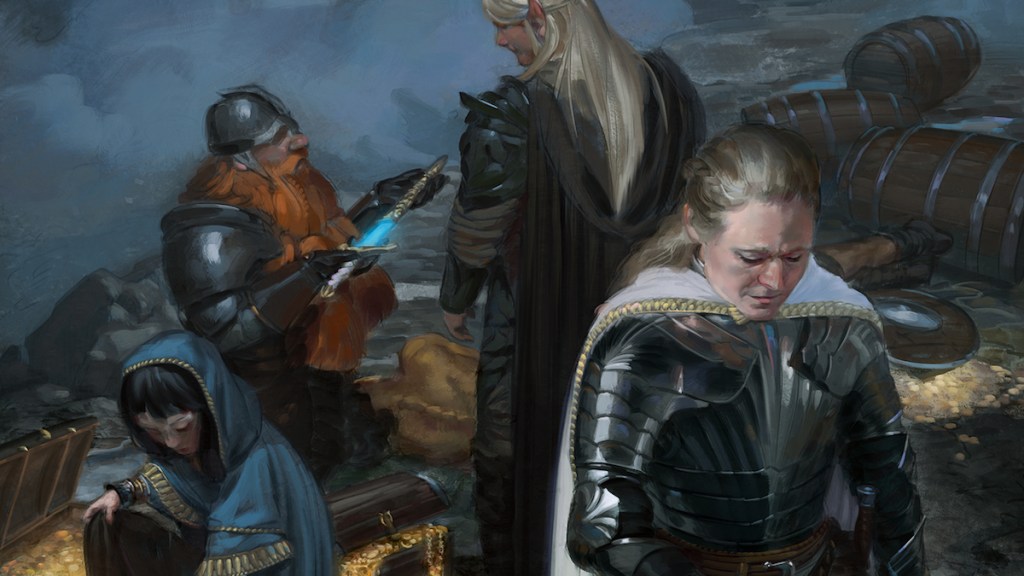
- Role: Damage, Healer, Support
- Primary Stat: Wisdom
- Hit Dice: 1d8 per level
- Saving Throws: Wisdom, Charisma
- Skills: Choose two from History, Insight, Medicine, Persuasion, Religion
Clerics are often the default healer or support member of a party, given they have access to an extensive pool of spells and abilities that can restore health and bolster allies in battle. While they can be great healers, Clerics are also capable of dishing out a lot of damage and can have vastly different playstyles depending on how you choose to play and build them. They are relatively straightforward and streamlined, making them a good option for newer players.
Related: D&D Reveals First Look At Upcoming Dungeon MasterMaster’s
Strengths
The obvious Strength of the Cleric is their healing. This class has plenty of options to heal and support other players, making them a valuable addition to any party. Beyond that, they can have wildly different playstyles thanks to their unique Domain feature, which represents their faith and worship. These Domains can provide a variety of bonuses, such as spells, abilities, and Domain Spells. For example, a War Domain Cleric will be a heavily armored battle priest with better combat capabilities, while a Life Domain Cleric will get improvements to their healing.
Weaknesses
One key weakness for a Cleric is their reliance on concentration spells, forcing them to maintain a spell for its duration and avoid being stopped by damage or status conditions. Players will need to be careful not to waste spell slots and use them at the right moment for them to be most effective. Additionally, Clerics may have to deal with the fact that the party will likely see them as a healer for their campaign. As such, they may get pigeonholed in certain situations and get stuck simply healing others rather than using their entire arsenal, though this will vary depending on who you play with.
Druid

- Role: Damage, Healer, Support, Utility
- Primary Stat: Wisdom
- Hit Dice: 1d8 per level
- Saving Throws: Intelligence, Wisdom
- Skills: Choose two from Arcana, Animal Handling, Insight, Medicine, Nature, Perception, Religion, Survival
If you enjoy the idea of spellcasting with a more nature focussed flair and love animals, then the Druid is the class for you. This class offers a bunch of different playstyles thanks to its diverse toolkit, allowing players to deal damage with nature-inspired spells, support allies with heals and buffs, or commune with animals and nature to disrupt and hinder enemies.
Strengths
One of the Druid’s features is Wild Shape, which allows them to transform into animals that can have a variety of uses both in and out of combat. You could be a bear to become more tanky and deal damage, or an eagle to fly to high places to scout or reach areas other party members can’t. They also have great spellcasting capabilities, with spells up to the 9th level that can fit multiple roles for a diverse playstyle.
Weaknesses
While Wild Shape can be very useful, it’s not the most durable transformation, with lower Armor Class making them easy to hit, and you are also unable to cast your spells in this form, at least not until the 18th level. Additionally, Druids can take a while to gain momentum, and they do not wear metal armor or have proficiency in any weapons, so you’ll be relying on either your spells and Wild Shape or getting some protection from the party.
Fighter
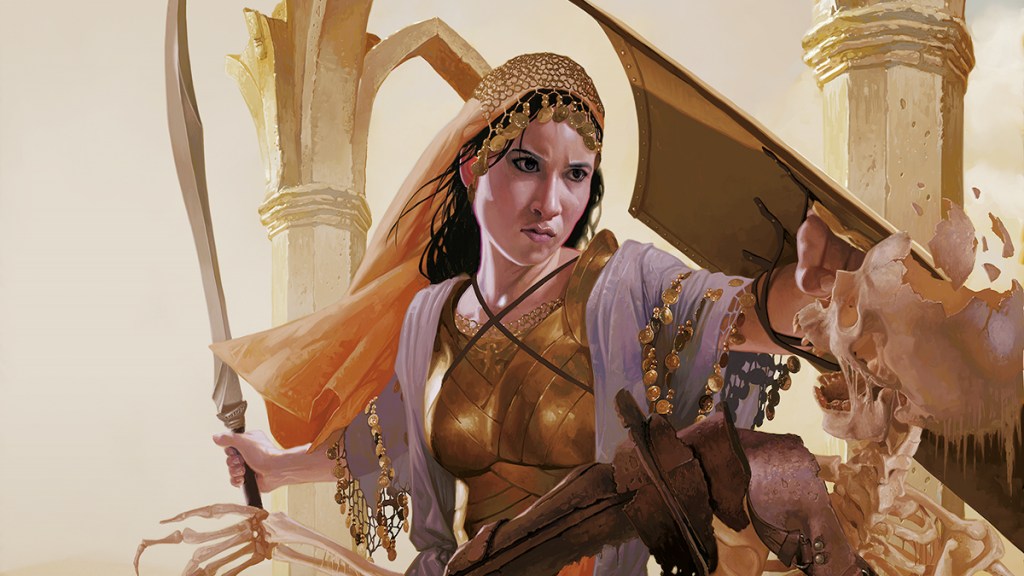
- Role: Tank, Damage
- Primary Stat: Strength or Dexterity
- Hit Dice: 1d10 per level
- Saving Throws: Strength, Constitution
- Skills: Choose two from Acrobatics, Animal Handling, Athletics, History, Insight, Intimidation, Perception, Survival
Fighters are the walking arsenals of the D&D world and are skilled in all things involving weaponry and combat. Like the Barbarian, Fighters enjoy getting into the thick of battle and using all manner of weapons to dispatch their foes and can take a few hits to boot. There are straightforward and approachable for new players and can be a great base when experimenting with multiclassing.
Strengths
As the name would suggest, Fighters are good at fighting. They have access to every weapon and armor type, and as they level up, gain access to abilities that allow them to heal themselves in combat and get additional actions to dish out more attacks. They aren’t restricted to being simple hack-and-slash heroes though, as their subclasses allow them to branch out and vary their playstyle, including the Eldritch Knight, which adds magic into the mix, or the Battle Master, who can use maneuvers to manipulate the battlefield with abilities to help or hinder.
Weaknesses
While Fighters shine in combat, they don’t at much else. Other classes have versatility in and out of fighting, but this class is a bit of a one-trick pony, given the courses focus on combat abilities. It can lead to some down or boring moments when your party isn’t in the thick of battle, and ultimately may not feel as rewarding to some players depending on the party or campaign.
Related: D&D: Best low-level adventures in Keys From The Golden Vault
Monk

- Role: Damage, Control
- Primary Stat: Dexterity or Wisdom
- Hit Dice: 1d8 per level
- Saving Throws: Strength, Dexterity
- Skills: Choose two from Acrobatics, Athletics, History, Insight, Religion, Stealth
Monks are martial arts experts who excel at unarmed combat and process a unique playstyle unlike any other classes in D&D. They can use their unique resource Ki to enhance their attacks and use maneuvers to dispatch enemies and provide support for their party. They are designed for the player who enjoys strategic thinking, as you’ll need to move in and out of combat with consideration and careful foresight.
Strengths
The Monk is made for dipping in and out of combat, and given their high Dexterity, are usually hard to hit and can make for a great choice for players who want something with a bit more stealth. Additionally, their Ki resource can be extremely helpful. It lets them augment attacks to use abilities like Stunning Strike that can apply a stun to spellcasters or healers, helping the party manage different combat challenges. They are quick, calculated, and fun for a player who enjoys a bit of challenge.
Weaknesses
Compared to other melee-focused classes, the Monk isn’t as durable with relatively low hit points and Armor Class. They can find themselves taking a beating quickly if not played carefully. They also aren’t the heaviest hitters and instead rely on small, consistent damage against enemies that can sometimes be more of a hindrance. They can also be tricky to play and, without planning, can feel underpowered.
Paladin

- Role: Tank, Damage, Healer, Support
- Primary Stat: Strength and Charisma
- Hit Dice: 1d10 per level
- Saving Throws: Wisdom, Charisma
- Skills: Choose two from Athletics, Insight, Intimidation, Medicine, Persuasion, Religion
Paladins are the bulkier, more durable cousin of the Cleric, and while they share some similarities, the Paladin has plenty of quirks that make it a focus all its own. Paladins can cause devastating damage with both melee and spells and support the party with blessings and buffs that can increase Hit Points, Armor Class, or Attack Rolls. They tend to be the leader of a driving force in a party thanks to their high Charisma and utility both in and out of combat.
Strengths
Paladins are an excellent option for a player who wants both magic and might, as they can dish out high damage thanks to their Strength and limited but effective spell options, the most notable being Smites. These spells apply extra damage and effect to attacks, such as conditions like Blind or cause damage on each turn. They also can support the party right in the middle of battle thanks to their high Armor Class and Hit Points, providing healing and support with spells and their Lay on Hands feature.
They also get to choose an Oath at 3rd level that defines their playstyle with unique spells and features. For example, the Oath of the Ancients is focused on preserving and protecting nature, while the Oathbreaker is a Paladin that has fallen from grace.
Weaknesses
Paladins are often seen as overpowered in 5e due to their damage output and diversity in playstyle, but that’s not to say they aren’t without flaws. For one, they have nothing regarding ranged or area of effect damage, instead focusing on single-target melee attacks, meaning they can be at a loss in ranged situations. They also have fewer spell slots than full spellcasters, giving them only a few uses of their spells before needing to rest.
Ranger
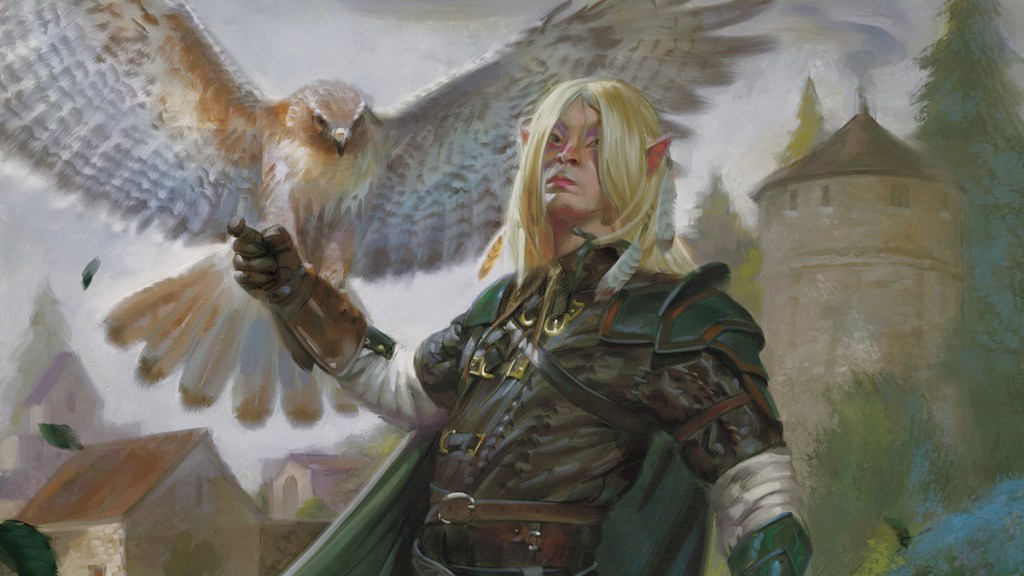
- Role: Damage, Support, Utility
- Primary Stat: Dexterity and Wisdom
- Hit Dice: 1d10 per level
- Saving Throws: Strength, Dexterity
- Skills: Choose three from Animal Handling, Athletics, Insight, Investigation, Nature, Perception, Stealth, Survival
Rangers are like the scouts and trackers of the D&D world and are a mix of both spellcaster and combat-focused gameplay, making them valuable party members with a lot of options. They can fight in melee and at range, with bonuses depending on how you build your Ranger. They also have a lot of customization options in combat and roleplaying, making them a class that offers a ton of freedom in character building.
Strengths
Rangers can access a unique ability from 1st level called Preferred Terrain. Preferred Terrain can help the Ranger navigate and travel through particular areas like forests or oceans, leading their party through danger or tracking their prey. On top of this, Rangers have a great selection of area-of-effect spells and can deal with multiple enemies at a time. They also have great subclasses choices, such as Beast Master, which gives you an animal companion, or a Hunter who can deal more damage and hunt larger prey.
Related: D&D: How to run Keys from the Golden Vault as a campaign
Weaknesses
In the case of the Ranger, their biggest strengths can also be their biggest weaknesses. Rangers can be very situational, and if a campaign or setting doesn’t fit with your Preferred Terrain, they become significantly less effective in and out of combat, which is disheartening, to say the least. They also can feel a little underwhelming compared to other classes regarding identity. They can only show off all their quirks in select situations, which can be mitigated somewhat with subclasses, but it’s a bit of a bummer when you don’t feel like you are using your class’s full potential. However, the recent Unearthed Arcana for the Ranger looks to improve the class’s versatility and powers considerably, so there is that to look forward to.
Rogue

- Role: Damage, Utility
- Primary Stat: Dexterity
- Hit Dice: 1d8 per level
- Saving Throws: Dexterity, Intelligence
- Skills: Choose four from Acrobatics, Athletics, Deception, Insight, Intimidation, Investigation, Perception, Performance, Persuasion, Sleight of Hand, Stealth
Rogues are the class for any player who wants to be a sneaky, backstabbing, pocket-picking scoundrel. Playing as a Rogue requires you to sneak around enemies, focus on getting surprise attacks, and use whatever skills you can to distract and dismantle your enemies. Outside of combat, they are like the Swiss army knife of your party. They can sneak into situations to gather information and provide utility by lock-picking and stealing. They are a more technical class and require strategic thinking, but can be a great addition to any party.
Related: DnD 5E: New Player Guide To Rogues
Strengths
Rogues are one of the most skillful classes in the game and gain proficiency in more skills than nearly every other class. It allows them to handle multiple situations like gathering intel or sneaking around to collect an item, giving them a lot of use in a party. In terms of combat, the Rogue is at its best when it’s sneaking or ambushing enemies, thanks to its Sneak Attack ability. This allows Rogues to do more damage to unaware enemies and works well with the hit-and-run playstyle of the class. To top it off, they can disengage, dash, and hide using bonus actions thanks to their Cunning Action feature, further adding to their arsenal.
Weaknesses
Rogues are not designed to be front-line fighters, and they can be at quite a disadvantage if caught in open areas or do not have the element of surprise. In addition, they are often the scouts or reconnaissance of the party and will often find themselves in dangerous situations. With one bad roll or slip-up, they can easily find themselves in hot water. They can also be quite technical and one note in some regards since they are at their best during stealth or ambushes.
Sorcerer
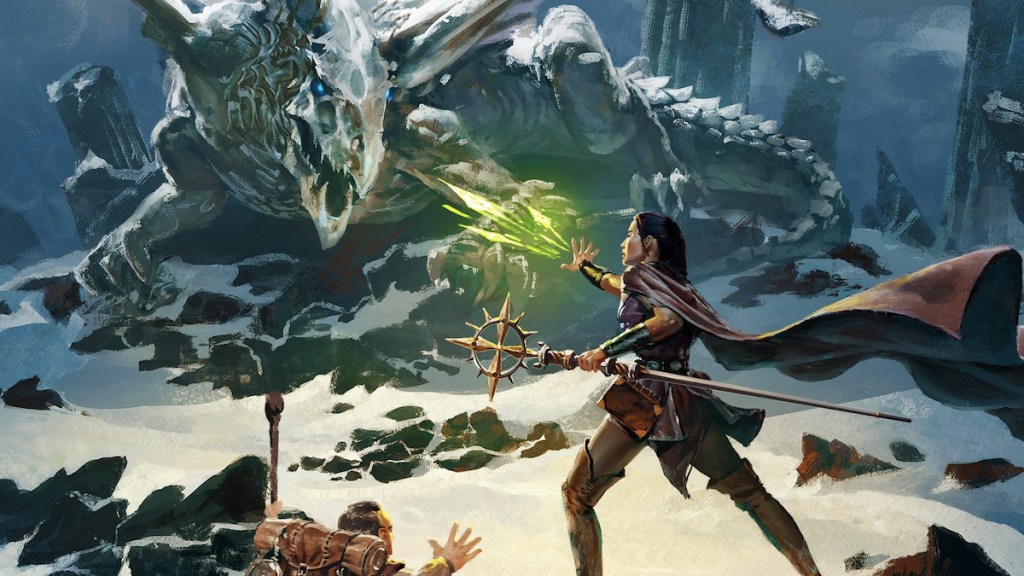
- Role: Damage, Control
- Primary Stat: Charisma
- Hit Dice: 1d6 per level
- Saving Throws: Constitution, Charisma
- Skills: Choose two from Arcana, Deception, Insight, Intimidation, Persuasion, Religion
Sorcerers are one of the primary spellcasters in D&D and a rather complex option for players. When playing as a Sorcerer, you’ll focus on dealing damage with a smaller, more focused selection of spells but gain various class abilities and features that let you empower and alter your spells with various effects. They also can do well in roleplay situations thanks to their high Charisma stat, giving them a bit more versatility.
Strengths
Sorcerers’ class features are their Sorcery Points and Metamagic features. Sorcery Points are a resource that Sorcerers can use with varied effects, such as regaining spell slots or fueling your Metamagic ability. Metamagic allows sorcerers to manipulate their spells with various results. These include increasing their spells range or being able to do multiple casts, giving them variety and options in how they use their spells. They also have a lot of Cantrips they can use consistently, which works well with these abilities.
Related: Dungeons & Dragons Honor Among Thieves Character Sheets & How To Get Them
Weaknesses
Sorcerers lack versatility compared to their caster cousins, but their class features and abilities can make up for this. You also have a smaller amount of spells you can have learned, so just be prepared to use the same spells a lot. They also have the usual disadvantage of being squishier than other classes and having fewer hit points and Armor Class, so they must be careful in combat. More importantly, they need to manage their resources, as it’s easy to run out of spell slots or Sorcery Points, which can leave you underpowered in crucial moments.
Warlock
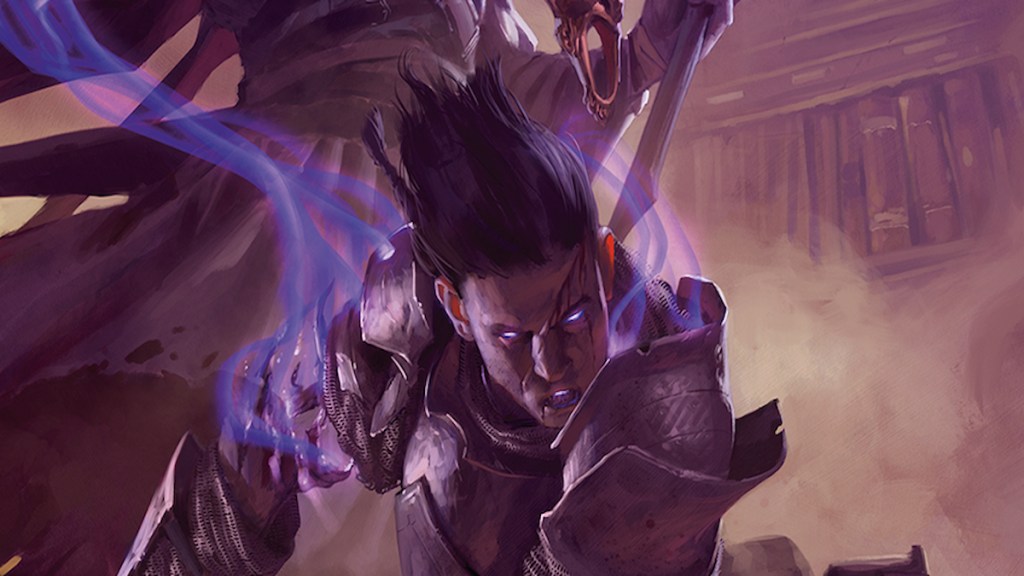
- Role: Damage, Control, Utility
- Primary Stat: Charisma
- Hit Dice: 1d8 per level
- Saving Throws: Wisdom, Charisma
- Skills: Choose two from Arcana, Deception, History, Intimidation, Investigation, Nature, Religion
Warlocks are the edgier option of spellcaster in D&D and gain their power through forming a pact with otherworldly beings. From a roleplay perspective, they have a ton of potential depending on your chosen Patron and their high Charisma score, which also affects their combat capabilities. Warlocks are known for using fewer spells but doing a lot of damage with those spells and can offer up a good amount of complexity thanks to their multiple class features.
Strengths
Warlocks have the unique Eldritch Invocations feature, which is best described as Warlock-centric Feats. These provide benefits and tweaks to your Warlock, allowing you to craft them however you see fit. These can be improving certain spells like the staple Eldritch Blast, providing it with more damage, or gaining an advantage to concentration checks. They also benefit from regaining their spell slots after a short rest, meaning they can return to blasting enemies sooner than other casters.
Weaknesses
The Warlock’s biggest weakness comes from their lack of spell slots, as they only have two until the 10th level, and then only have a total of four by the time they are 20th level. This means they are very limited in the number of spells they can cast and can end up burning through their spells very quickly and relying on Cantrips. While this isn’t an issue due to their plentiful and enhanced Cantrips by Invocations, you can burn through resources very quickly. You also have to consider that Warlocks are a bit squishy and can be quick to take damage if they aren’t careful.
Wizard

- Role: Damage, Control, Utility
- Primary Stat: Intelligence
- Hit Dice: 1d6 per level
- Saving Throws: Intelligence, Wisdom
- Skills: Choose two from Arcana, History, Insight, Investigation, Medicine, Religion
The Wizard is the quintessential magic user in D&D and is perfect for players who want to wield all the magical power they can. Wizards are all about using a wide variety of spells thanks to their Spellbook Feature. They also can deal serious damage, control the battlefield, and provide a bit of support where needed. They can appear tricky at first, but given some time to understand their quirks and features, they can be an extremely useful and powerful addition to a party.
Strengths
The Wizard has access to hundreds of spells thanks to their Spellbook, which allows them to pick what spells to prepare each day, and they can be swapped and changed. As they level up, they can learn new spells and prepare more, slowly allowing them to become magic juggernauts. This allows them to be highly versatile and have a spell for nearly every situation in and out of combat.
Weaknesses
As you may expect, the Wizard is a glass cannon and is useless in close combat due to their low Hit Points and Armor Class. If you find yourself in a close encounter, you best be prepared to take some hits. They can also be a complex class to master, as you’ll have a lot to keep track of in terms of spells and abilities in order to make the most of their strengths.

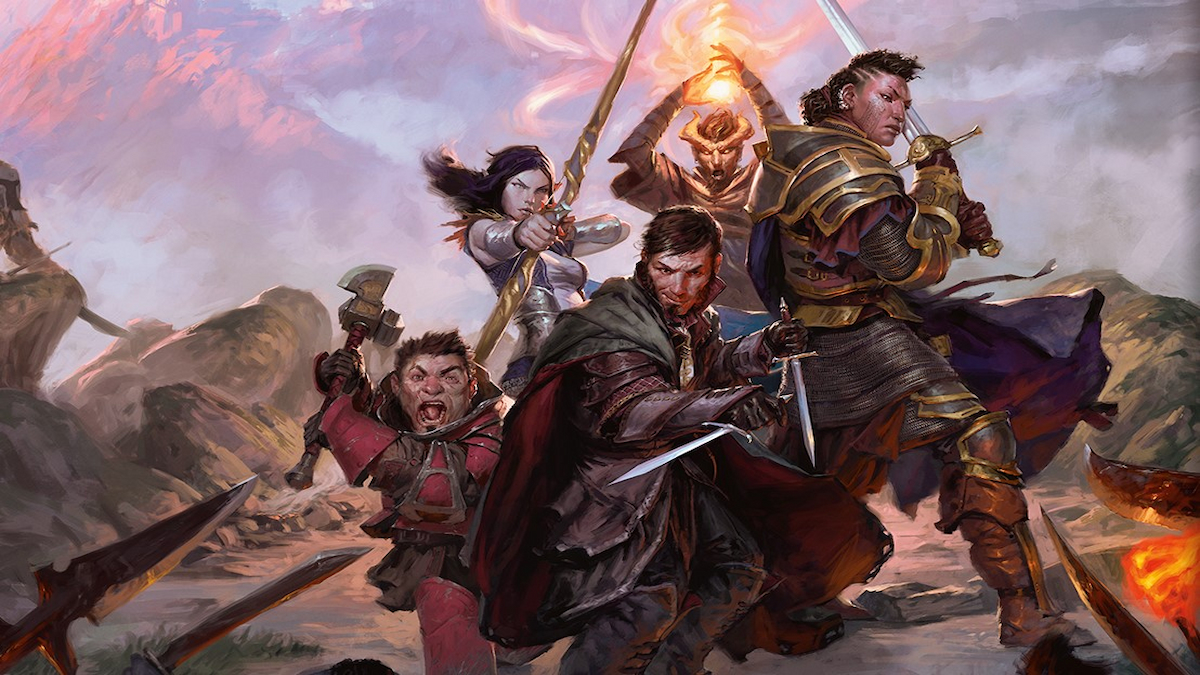

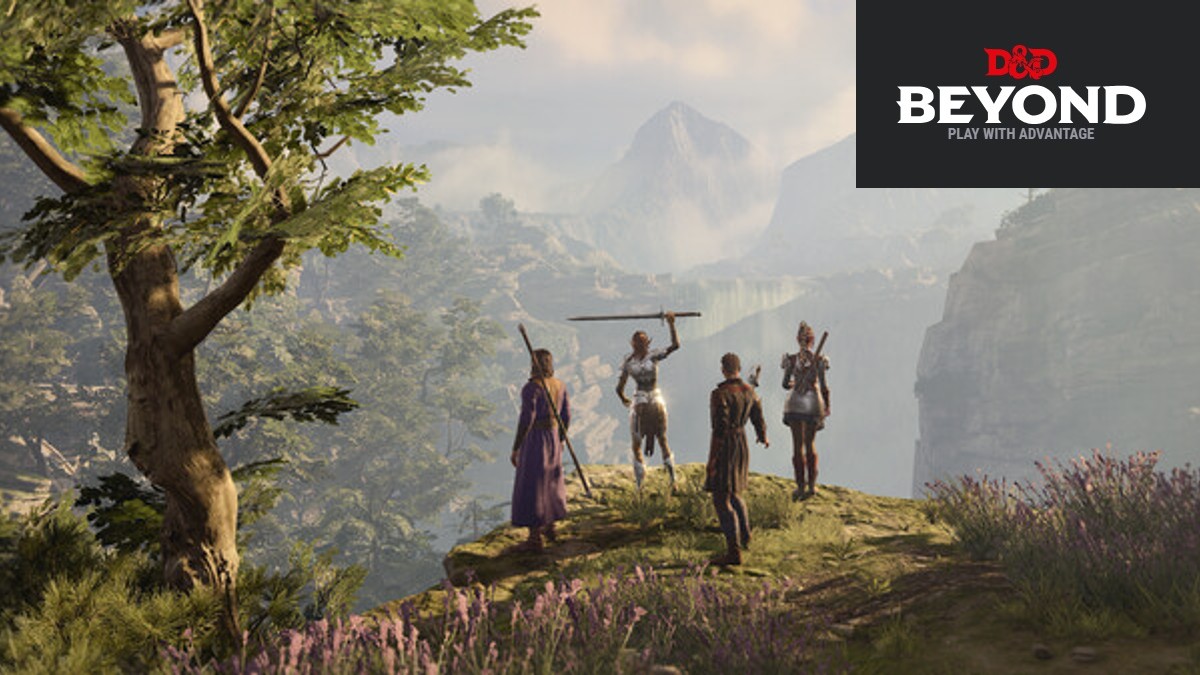
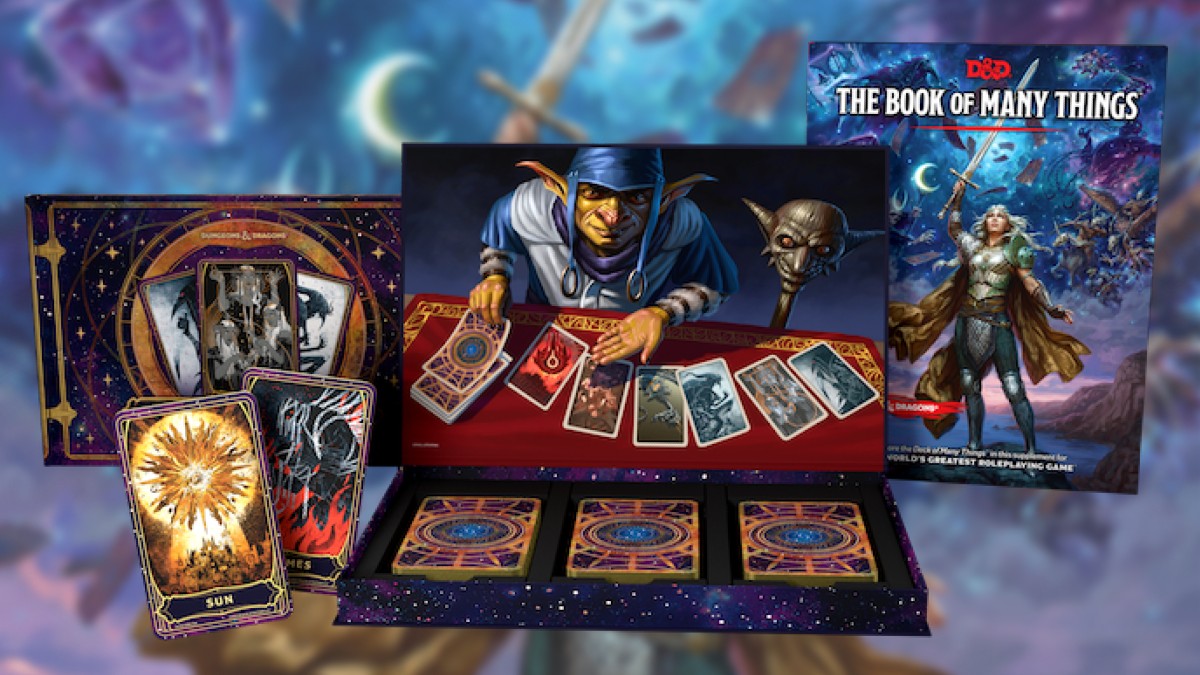
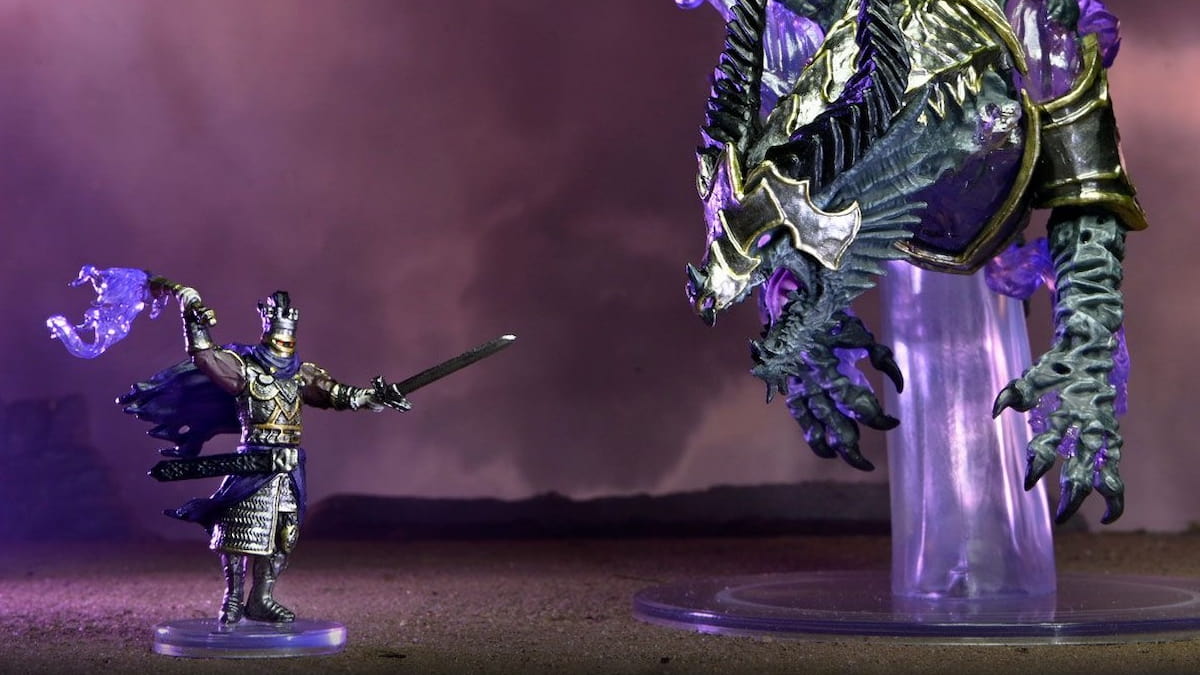
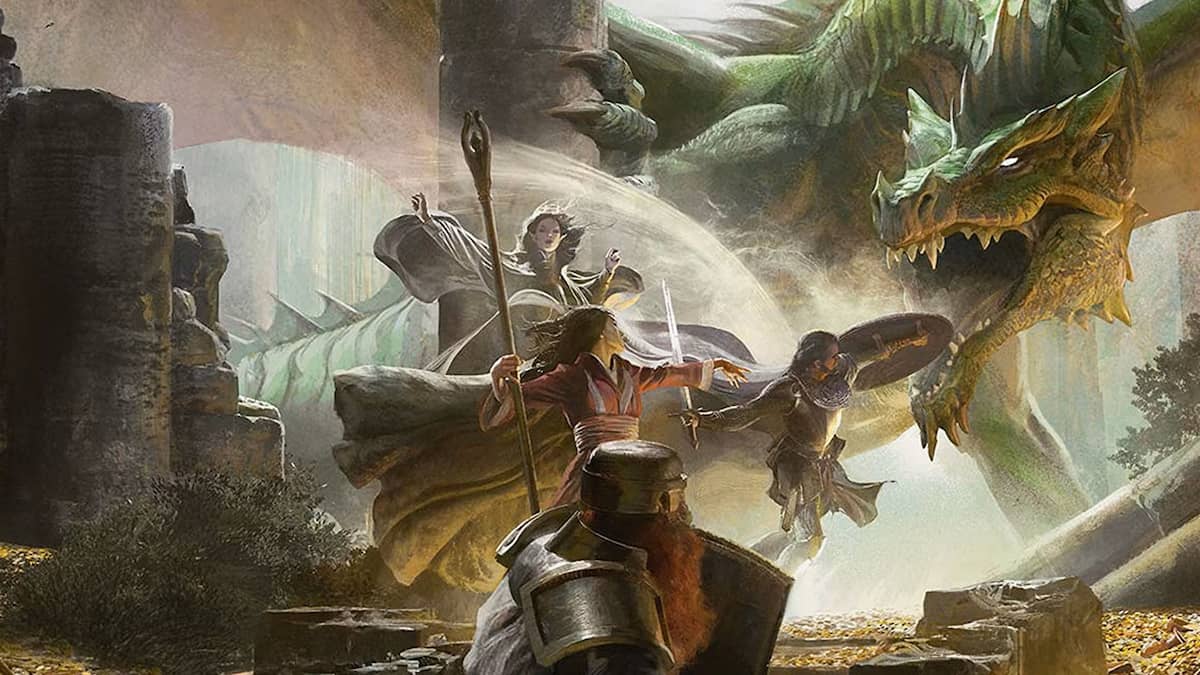
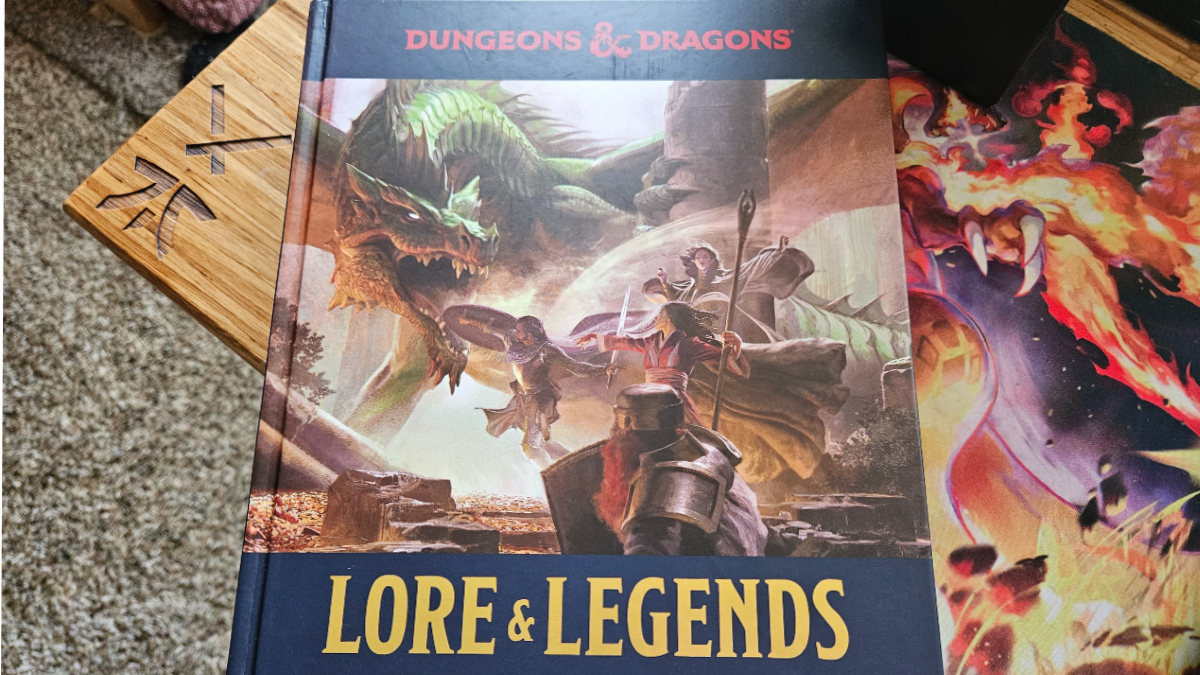
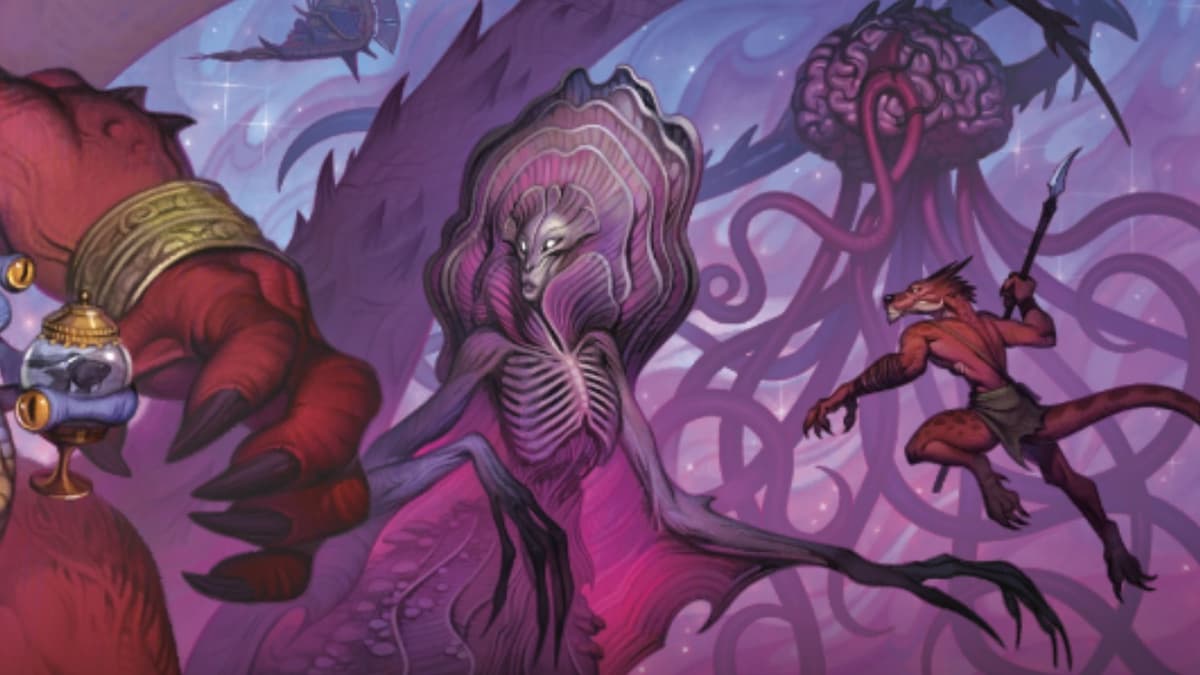
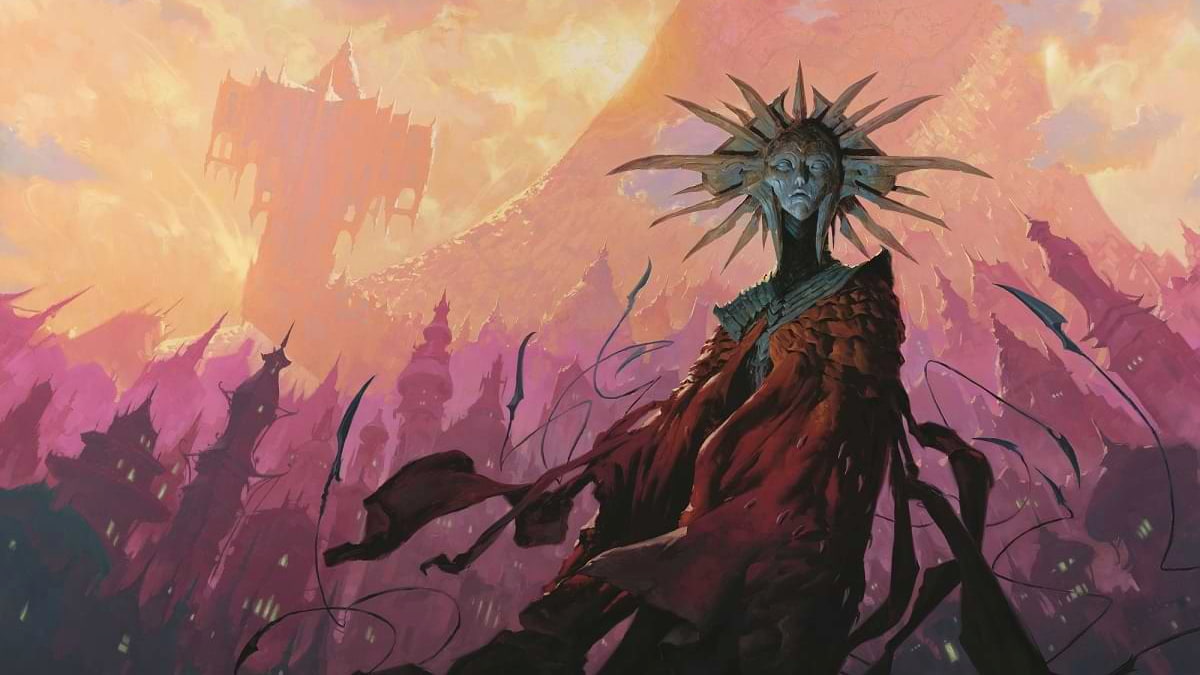
Published: Apr 21, 2023 02:56 pm